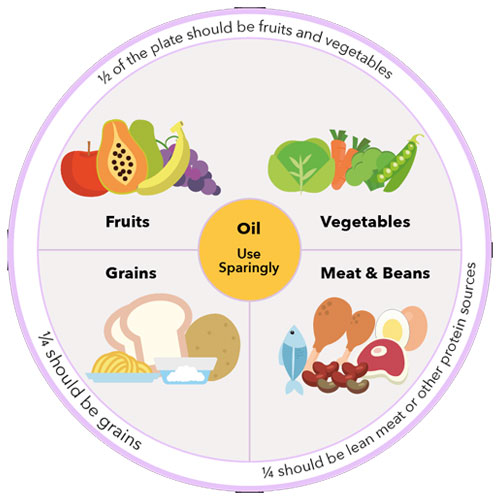How to do a family meal plan?
Creating a family meal plan can simplify mealtime, reduce stress, and help everyone eat more balanced and nutritious meals. Here’s a step-by-step guide to building an effective family meal plan:
Assess Your Family's Preferences and Needs
Preferences: Find out what everyone likes and dislikes. Involve the whole
family, especially kids, in planning to ensure everyone has meals they’ll
enjoy.
Dietary Needs: Consider any dietary restrictions, allergies, or health
goals, like low-sodium meals, high-fiber options, or extra protein for
active family members.
Set a Weekly Menu Structure
Theme Nights: Create a structure to simplify planning. Examples include
"Meatless Mondays," "Taco Tuesdays," "Pasta Wednesdays," etc. It helps in
narrowing down choices and adds fun to the planning.
Breakfast and Snacks: Decide on a few go-to options that are easy to
prepare. This can include smoothies, oatmeal, yogurt, fresh fruit, or
granola bars.

Lunch and Dinner Variety: Aim for a mix of protein, vegetables, whole grains, and healthy fats.
Choose a Balanced Recipe List
Use a Balanced Plate Approach: Each meal should ideally include a protein
(chicken, beans, eggs, etc.), a vegetable, a whole grain (brown rice,
quinoa, whole-wheat pasta), and healthy fats (avocado, olive oil).
Plan for Leftovers: Save time by planning meals that yield leftovers for
lunches or even dinner the next day. Soups, casseroles, and stir-fries are
great options for this.
Make a Grocery List
Based on your planned meals, make a detailed shopping list. Group items by
section (produce, dairy, grains, etc.) to make shopping more efficient.
Bulk Purchases: For frequently used items, buy in bulk to save money,
especially on items like grains, beans, and frozen vegetables.
Prep in Advance
Batch Cook: On weekends, batch-cook items like grains, roasted vegetables,
or even proteins. You can also chop vegetables or marinate meats in
advance.
Pre-portion Snacks: Prepare easy, healthy snacks like sliced veggies,
yogurt cups, or homemade trail mix that the family can grab and go.
Stay Flexible
Life can get hectic, so have some quick and easy backup meals, like frozen stir-fry veggies or canned beans. Keep a list of 10-minute meals, such as sandwiches, salads, or scrambled eggs, for busy nights.
Involve the Family
Get kids or other family members involved in cooking, which helps them feel more engaged with the meal plan. Assign tasks based on age and skill level to make meal prep a family activity.
Evaluate and Adjust
After the first week or two, review how well the plan worked. Take note of what the family enjoyed and what didn’t go over well, and adjust the plan for the following week accordingly.
With these steps, your family meal plan will make dinnertime easier and healthier, ensuring you’re all getting nutritious, satisfying meals without the last-minute rush!
Popular Services
Physical Therapy
Plans customized to manage weight with diabetes with a focus on reversal of Type II diabetes.
Contact Us100
Customer950
Per Day Visitors2000
Satisfied Clients10
Award Winning




